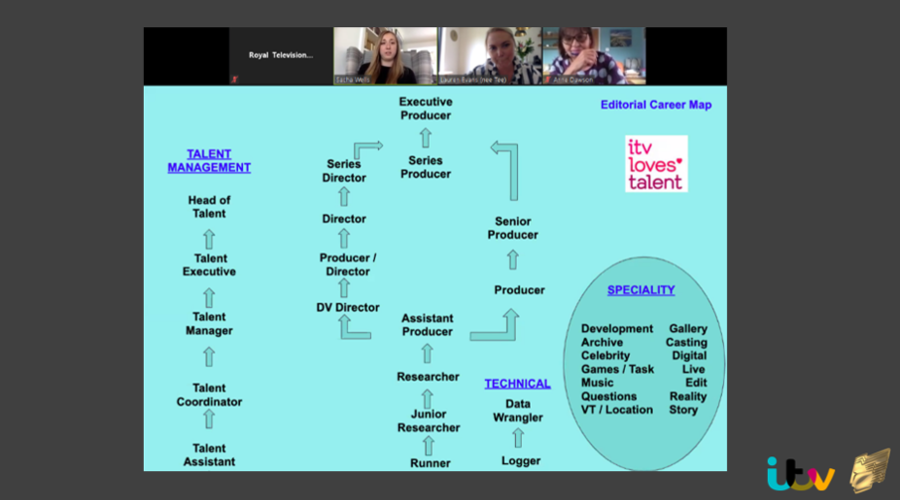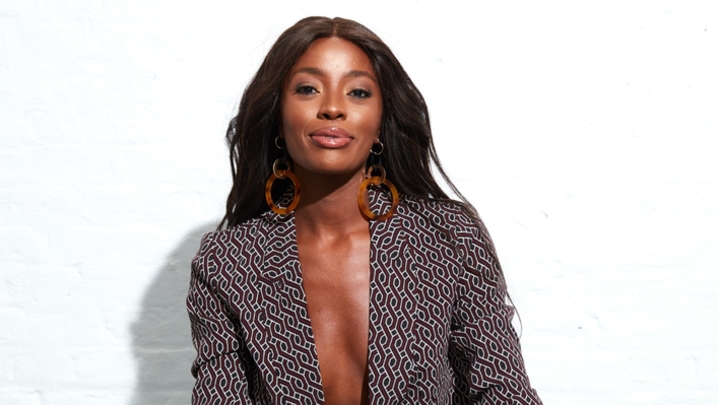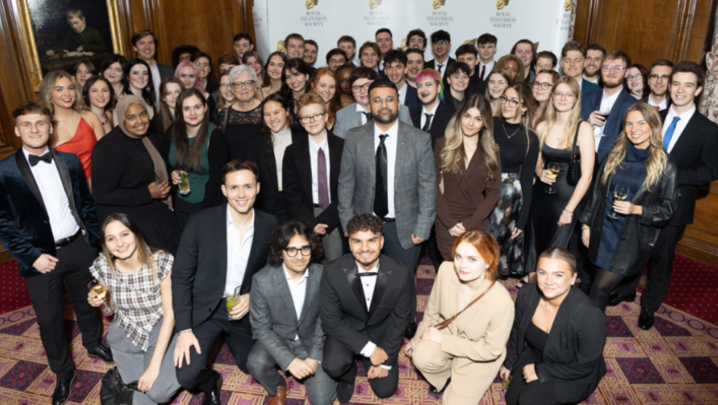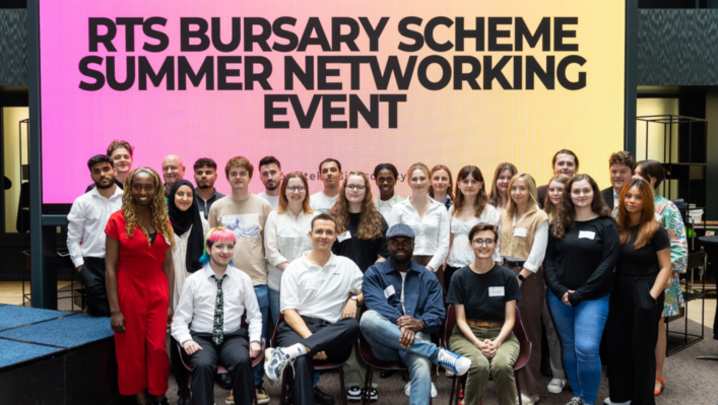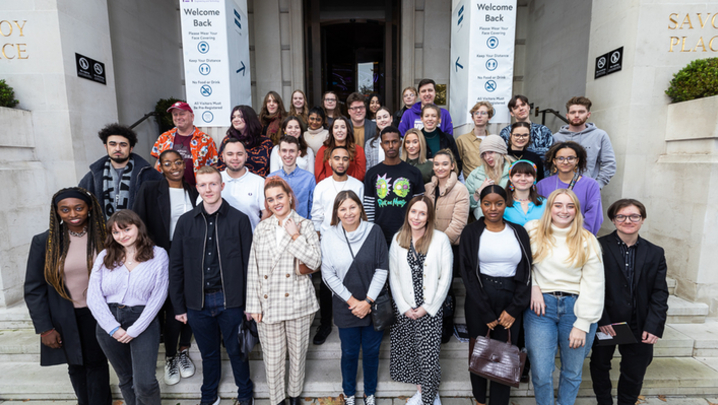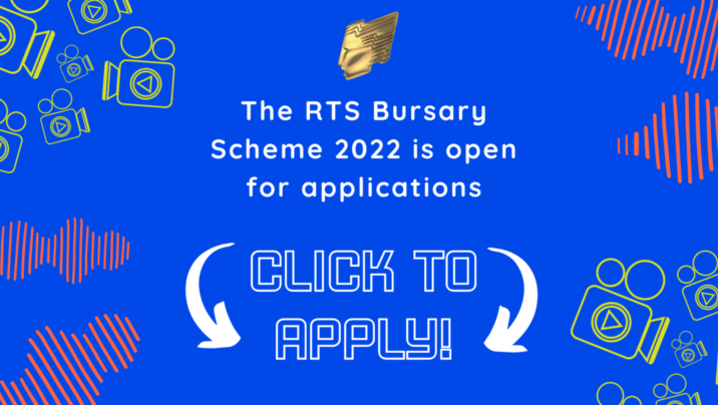A series of events for and by students from the RTS Bursary Scheme over the past month have offered invaluable advice and support to young people hoping to make a career in television.
Bursary alumni Suzanne Pearson and Florence Watson – part of the inaugural 2014 cohort of the scheme, who both graduated in 2017 – offered tips on how to get a foot in the door of the industry at the end of May. From producing soap script bibles to advice on maintaining a work-life-balance on 18-hour shooting days, they left no stone unturned.
The pair have come a long way since graduation: Pearson has worked as a freelance researcher/self-shooter for observational documentaries such as ITV’s Heathrow: Britain’s Busiest Airport; Watson worked her way up from runner to script editor on Channel 4 soap Hollyoaks and is now a script editor at hit BBC drama Call the Midwife.
They advised entrants to take note of their peers – not only do fellow creatives become friends and sounding boards, their help could also prove invaluable throughout a career. “Stay connected with people, as when they climb up the ladder, they’ll often take you with them,” said Pearson.
In mid-May, Lydia Noakes, RTS bursary alumnus and current production assistant at Candour Productions (formally True Vision Yorkshire), gave bursary students the inside track on how the indie made the Channel 4 documentary A Day in the Life of Coronavirus Britain in just a few days.
On 3 April, Candour asked the country to send in videos of how they are living their lives amid the Covid-19 pandemic, receiving more than 3,000 clips and editing them in just three days. The film aired on 6 April. “We had a team of six, along with a couple of freelancers going through the 3,100 clips,” recalled Noakes, who helped to catalogue and shortlist potential clips to be featured.
Candour teamed up with True Vision London to produce the film, which also included footage from shooting producer-directors, as well as the user-generated content from the general public. ‘People wanted to be involved to be part of history,” said Noakes. It was thanks to the public and their smart phones that viewers saw frontline workers not going about their business as usual, but rather their “business unusual”.
Noakes first met Anna Hall, creative director of Candour, when they were paired up as mentee and mentor on the RTS Bursary Scheme. After graduating from Leeds University with a first-class degree in journalism, Lydia was given a six-month placement at True Vision Yorkshire, which has now been extended until 2021.
On the last day of April, ITV talent manager Lauren Evans and talent coordinator Sacha Wells offered advice – from building career maps to creating a stand-out CV – on how to break into TV.
The pair gave an overview of a talent manager’s role, which includes overseeing talent pools that run from researcher to executive producer.
Wells highlighted the importance of knowing a company’s output inside out – and understanding the difference between shows that ITV Studios creates in-house (Love Island) and programmes it broadcasts (Britain’s Got Talent).
A crash course in formatting CVs advised listing practical skills, such as being adept at editing programmes, over soft skills. “Your CV is the first thing people see and will make you stand out from the crowd so make it personal to you,” said Evans.
RTS bursary student Izzy Thompson said: “The webinar gave real insight into the different paths you can take to your desired role in the industry. I found the CV guidance particularly helpful.”

